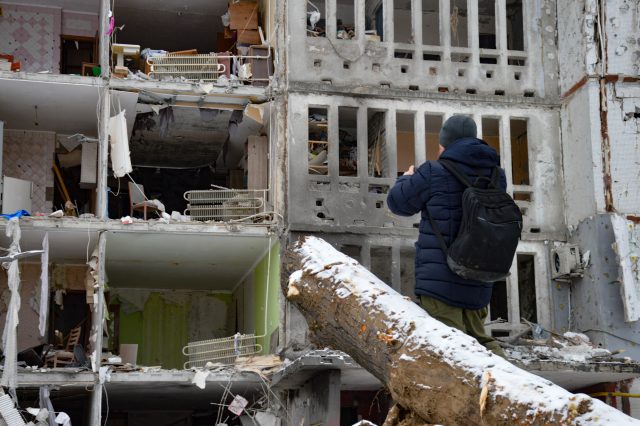The report is based on the results of a sociological study conducted in Kharkiv in December 2023 – March 2024. This study investigates the effects of acoustic violence perpetrated by the Russian Federation against Ukrainian civilians during the terrorist war and the systematic bombing of the city using various types of munitions.
The authors of the study view acoustic terror as an element within the broader terrorist strategies employed by the aggressors to realize their military and political objectives.
Click to download the full report Acoustic Terror in the Russo-Ukrainian War: A Sociological Dimension (in Ukrainian).
This qualitative study employed loosely structured, focused interviews with 31 Kharkiv residents who experienced the war in the city and could recount their experiences with shelling and reflect on “the sounds of war.” These interviews form the empirical basis for the subsequent analysis and conclusions.
Shelling and bombing inflict acute and chronic trauma, resulting in intense suffering for civilians. This suffering stems from shock waves, loud noises, and information regarding destruction and the death of others. The uncertainty of the situation further contributes through autosuggestion, widespread fear, the visual impact of urban destruction, and the anticipation of negative events.
Systematic shelling in a large city leads to widespread chronic stress among the population. This condition arises from acute stress caused by shock waves and the continuous sound of explosions, along with secondary factors or the persistent “background violence” inherent in warfare.
War-related chronic stress leads to psychological changes, nervous tension, “projection syndrome”, sleep disturbances, and impaired rehabilitation due to ongoing acoustic terror.
Acoustic terror’s most significant impact lies in its long-term effects, manifesting as mental, psychological, and physical illnesses. Medical professionals have observed that shelling and stress correlate with rising trends in cardiovascular diseases, cancer, and type 2 diabetes.
This research data can serve as a basis for a corpus of accusations against the aggressor nation, facilitating the prosecution of Russian Federation leaders in international criminal courts.
Research team:
- Nataliya Zubar – project administrator.
- Professor Igor Rushchenko – scientific director of the project.
- Associate Professor Igor Dubrovsky – executive researcher.
- Serhiy Petrov – researcher.
The research was organized by the Maidan Monitoring Information Center with the support of the Konrad Adenauer Foundation in Ukraine.
Click to download the full report Acoustic Terror in the Russo-Ukrainian War: A Sociological Dimension (in Ukrainian).





